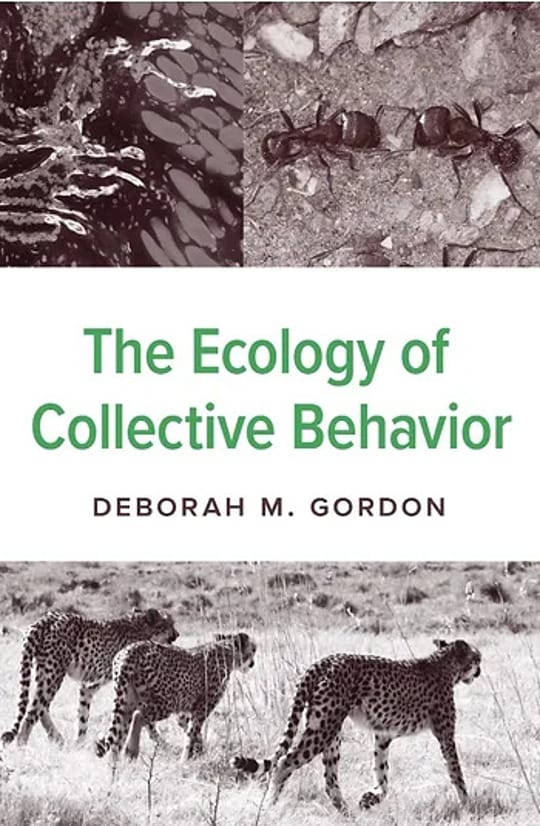Harmonizing Agriculture: The Collective Behavior in Sustainability Initiatives

Many natural systems, from the human brain to ant colonies, showcase the power of decentralized networks and interactions in achieving collective goals. Professor Deborah Gordon's work at Stanford University, exploring ant colonies to understand decentralized systems, provides a fascinating backdrop for understanding the principles of collective behavior.
In her book The Ecology of Collective Behavior, Gordon examines two ant species, the red harvester ant and the Western black carpenter ant, to elucidate principles of decentralized decision-making, adaptability to changing environments, and the significance of diversity and specialization. These principles, evident in the intricate dynamics of ant colonies, offer a foundation for understanding and improving organizational dynamics within the High Atlas Foundation (HAF).
HAF's vision revolves around community priorities, fostering collaboration among community members, and supporting a unified goal. The organization provides communities with trees from community-managed nurseries, promoting sustainable economies and landscapes across Morocco. This approach echoes the decentralized nature of ant colonies Gordon discusses, where local interactions among community members drive collective success. The organization's commitment to adaptive management and community engagement finds resonance with Gordon's principles. Rigorous monitoring processes ensure transparency and effectiveness in tree-planting projects, mirroring the adaptability observed in collective systems. HAF's empowerment workshops further empower community members to actively participate in decision-making processes, echoing the decentralized decision-making seen in ant colonies.
The multidimensional approach of HAF, exemplified by initiatives like the House of Life project, aligns with the principles of diversity and specialization. The collaboration between the Moroccan Jewish community and neighboring Muslim farming communities showcases diverse roles and collaborative efforts. HAF's nurseries, spread across Morocco and supported by various entities, serve as a testament to the organization's commitment to diversity, interfaith collaboration, and socio-economic development.
HAF's ecological approach, reflected in its consideration of the environment through the adaptive management system, aligns with Gordon's insights. By understanding the interplay between the environment and collective behavior, HAF designs farming systems that harmonize with the local ecology. Moreover, feedback mechanisms, essential in collective systems, form a crucial part of HAF's strategy. The commitment to robust feedback mechanisms aligns with Gordon's emphasis on the vital role of feedback in optimizing collective systems. Through continuous feedback loops, HAF can adapt its strategies dynamically, fostering a more responsive approach to community development.
HAF’s projects are also a reflection of Morocco's decentralization goals, supporting the needs of the people. The country has implemented programs emphasizing participatory democracy for sustainable development, potentially serving as a model for other nations. Morocco's commitment to decentralization covers various aspects, including local development, women's rights, cultural diversity, and democratic participation. The decentralization plan involves two frameworks aimed to support the priorities of local communities: the Roadmap, emphasizing local projects, and the 2019 Charter, detailing relationships between central and regional levels. By integrating adaptability, diversity, and ecological harmony, HAF's focus on community development contributes to Morocco’s decentralization objectives, and mirrors natural decentralized principles.
Looking ahead, HAF can further improve its impact by further enhancing community building and addressing climate change. Strengthening engagement through more educational programs, expanding capacity-building efforts, and promoting diverse income-generating activities can empower communities beyond tree planting.
Moreover, diversifying tree species, implementing climate-resilient techniques, and emphasizing carbon sequestration can strengthen HAF's role in addressing climate change. Insights from The Ecology of Collective Behavior, along with HAF's work, promote sustainable agricultural development, embodying the principles of adaptability, diversity, and ecological harmony.